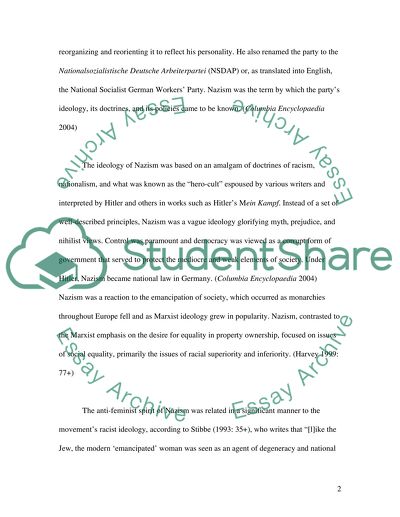Cite this document
(“The Status of German Women under Nazism Essay Example | Topics and Well Written Essays - 2000 words”, n.d.)
The Status of German Women under Nazism Essay Example | Topics and Well Written Essays - 2000 words. Retrieved from https://studentshare.org/miscellaneous/1527126-the-status-of-german-women-under-nazism
The Status of German Women under Nazism Essay Example | Topics and Well Written Essays - 2000 words. Retrieved from https://studentshare.org/miscellaneous/1527126-the-status-of-german-women-under-nazism
(The Status of German Women under Nazism Essay Example | Topics and Well Written Essays - 2000 Words)
The Status of German Women under Nazism Essay Example | Topics and Well Written Essays - 2000 Words. https://studentshare.org/miscellaneous/1527126-the-status-of-german-women-under-nazism.
The Status of German Women under Nazism Essay Example | Topics and Well Written Essays - 2000 Words. https://studentshare.org/miscellaneous/1527126-the-status-of-german-women-under-nazism.
“The Status of German Women under Nazism Essay Example | Topics and Well Written Essays - 2000 Words”, n.d. https://studentshare.org/miscellaneous/1527126-the-status-of-german-women-under-nazism.


